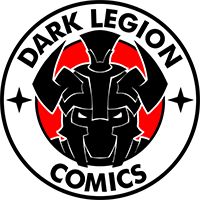Unity Creates the Wrong Kind of Unity

Last week Unity Create announced a plan that may have killed the company. Starting next week developers will be charged $0.20 per downloaded game that uses the Unity Engine.
This caused an eruption in the game developer community, the kind that might easily turn out to be an extinction-level event.
Darklings: Why the big woof? It’s only $0.20. That amount is so small you can’t find a cent key on most planks these days.
Good question and here’s the reason for the heartburn. Unity is easily the number one engine of choice for most Indy creators, with better than 750,000 games now using the Unity engine. The problem is about 70% of these are mobile games. The Apple App Store and Google Play are notorious for strong-arming companies into charging nothing for their games. Those indie games that are on Steam are usually only charging Five bucks a game if that. Twenty cents a copy is a huge bite out of their profit margin. Not their gross you understand but their profits, such as they are.
This isn’t a rate hike, this is something that came out of the blue. The Indie devs had no idea that Unity’s terms of service allowed them to be screwed like this because the subject hadn’t come up before.
Things in the independent game developer world have been building to a head for a while because things in the gaming world, in general, have been building to a head due to the issue of over-monetization. That’s because indie devs are gamers too and the East Coast MBAs who run the majors now are not.
C-suites across those gaming companies have been preaching for years that the old model of, just build a game and charge a fair price for it once, is no longer profitable. Or to be exact is no longer profitable enough.
So far as the MBAs are concerned, if you aren’t making all the money possible you may as well be making no money.
The major gaming companies were started by gamers for gamers. Then they started making mega-bucks which attracted the kind of executives who no passion for gaming but do have a passion for squeezing every possible dime out of their customers. When these treasure goblins reach a critical mass, the company goes downhill very fast.
Blizzard at one time could do no wrong so far as gamers were concerned. They didn’t have new releases they had seismic events. Every new game Blizzard launched redefined the industry because it was the game everyone HAD to play. And it was Blizzard that began the new hyper-monetization model with World of Warcraft. When the treasure goblins moved in this very unwelcome feature was imported into Diablo III. This was the first major parking lot ding in Blizzard’s once impeccable custom paint job. The problem is that this fuckup was followed up with the success of Hearthstone which was indeed heavily monetized. What they didn’t get was that it wasn’t their brilliance at work but that card gamers were used to having to pay through the nose for booster packs but trigger-time gamers were not. So they kept right on wallet hoovering and under-delivering until the company collapsed and was sold to Microsoft.
In the modern business world, you don’t start at the bottom and work your way to the top at the same company all your life. You get promoted by being hired by a new company at a higher position. Consequently, bad ideas at one company tend to get around quick these days.
For that matter so do bad people.
A few years ago there was a company called Ironsource run by an asshole named Tomer Bar Zeev. Ironsource was an Israeli shovelware company and what it mostly seemed to shovel was malware. They were in trouble but then Unity bought them up and Tomer Bar Zeev became one of Unity’s presidents.
Darklings: Why the fuck did Unity buy up this plague rat of a company?
Dark Herald: Because Unity went public and some very unsavory types bought their way onto the board.
The kind of people who are very good at making the kind of deals that strongly benefit venture capital while screwing over the end-users. Unity Create was offered $1 billion to put the merger with Ironsource through.
It didn’t make a lick of sense financially. Unity Create traded $4.4 billion in assets for a broken sewage pipe of a company and in exchange they only got $1 billion from Silver Lake and Sequoia Capital? But Roelof Botha and Egon Durban were on the board of Unity before the deal went through and Tomer Bar Zeev was on the board afterward. There are 13 BOD members of Unity Create and 11 of them are fund managers.
Everybody is blaming John Riccitiello for this but the fact that he had sold his stock before this was announced indicates to me that he knew this policy was going to be as popular with Indie Devs as Andrew Anglin at a bar mitzvah.
At this point, it’s pretty much a doctrine of faith among the dev community that games with the Unity engine will shortly begin to flag malware alerts and demand Admin permissions. Expect Riccitiello to retire, Tomer to be named CEO and Unity Create to utterly collapse as Indie Devs flee to any other gaming engine.
Okay, I’m done here.

